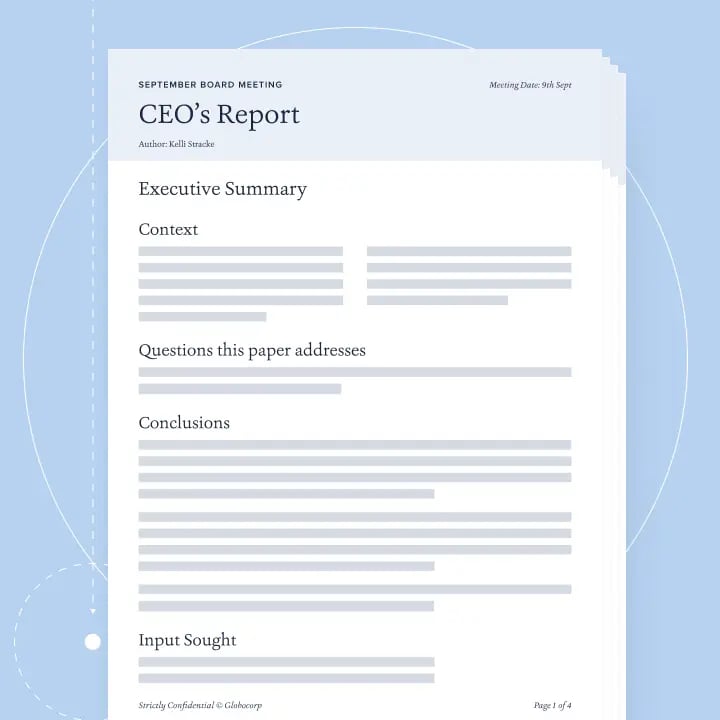What was the challenge?
I joined Ploughshare in 2020 because I loved the organisation’s mandate: to get the most value for wider society from the investment made by the Ministry of Defence into science and technology. Ploughshare is the technology arm of the Defence Science and Technology Laboratory, and had just undertaken an external review into its impact on society. We found that, besides £15m of income generated in the first 15 years of existence, we had also made £117m in Gross Value Added (“GVA”, a measure of our value to the national economy), about £152m in exports, and created over 400 jobs.
When I saw this, I thought, “That’s what matters!” I would much rather focus on delivering a substantial positive impact to our economy and society, than solely on our cashflow or financial returns. That, for me, is a much better frame of reference and purpose, and is far more inspiring for the organisation and those who work with us.
I realised that we, like so many organisations, were framing our work in the wrong way. And this caused us to make sub-optimal decisions driven by the need to bring in money year-on-year. For example, we relied upon upfront license fees for access to our cutting edge technologies, and turned down several deals where these fees couldn’t be agreed upon. That, in effect, amounted to a conscious decision to leave innovation on the shelf and not in the hands of users where it could deliver benefit and literally save lives, simply due to having a focus on short-term income.
“We, like so many organisations, were framing our work in the wrong way. And this caused us to make sub-optimal decisions.”
Organisations have become increasingly better at telling stories about their mission and why they exist beyond making money. But have they managed to translate these stories into measurements of value? Measurement is not only important for investors, it also matters for communication, both externally and internally, and to your own people. The challenge is therefore to complement the stories with metrics, so the true impact you’re having on wider society becomes clear.
How did you tackle the challenge?
Step 1: define purpose
As the CEO, I had to reflect on what we, as an organisation, should be caring about. And I realised it had be first and foremost about the ground-breaking innovation we have that can save lives, that can protect people, that can create jobs, and help the economy. Our focus had to be on getting the technology out of the lab and into the hands of users — that is the primary reason why we should exist.
Step 2: outline strategy
If I’ve got a funding or business model that stands in the way of achieving our purpose then it’s the wrong model. This step takes you from “Why are we here?” to “What organisational strategy do we need to deliver our purpose?” For us, that meant talking to our owner, which is the Ministry of Defence, and demonstrating why our business model was sub-optimal and not ultimately delivering on the things that matter to them.
The data from our external review gave me the facts and figures I needed to ask: “Do we want to focus on delivering £150 million GVA, or on £15 million of income?” That created a stark conversation — before we even got on to the importance of saving lives. Covid was also a key driver: one of the positive outcomes of the pandemic was that we all saw the benefit of innovation and technology on people’s health and lives.
“Our external review gave me the figures I needed to ask: ‘Do we want to focus on delivering £150 million GVA, or on £15 million of income?’ That created a stark conversation.”
And so, in April 2022, we relaunched with a new strategy, with our fundamental reason to exist being to put Ministry of Defence science into the hands of users to deliver prosperity, protect lives, and save the environment. We now measure our success by our total impact on the economy and wider society in the long term, not on short-term income.
This has driven other changes. For example, we’ve started to spin out more innovations into their own companies. Within five years we expect to be creating around five new businesses every year. Spin-outs are a slower burn in terms of returns but are typically far more additive to the economy. One recent spin-out, Presymptom Health, uses an innovation that can diagnose the onset of sepsis up to three days before symptoms arise. If the clinical trials are successful, it will save hundreds of thousands of lives and a significant amount of NHS money.
Step 3: set metrics
You get what you measure, and if you focus on measuring something different, you get different outcomes. So, the next key step was to identify the right metrics to monitor what we care about.
First, we’ve set metrics that focus on economic outcomes whilst of course monitoring the financial returns. We’ve decided to use GVA, exports, and job creation. Economic value is harder to measure than financials, so we use the Blue Book (the UK national accounts statistics) to define how we measure this.
Secondly, we’ll be setting social and environmental metrics — for example around lives saved and protected. Quantifying this is more difficult, so to start we have to go on a case-by-case basis, looking specifically at the context and use cases of each individual innovation.
Step 4: report and communicate
Our people and our inventors, who are fundamental to identifying and pulling through the right innovation, are really inspired by the wider focus on impact. So communicating well and using the conversation to spark ideas and do even more with the science and technology we have access to is where the magic happens!
“Using the conversation to spark ideas and do even more with the science and technology we have access to is where the magic happens!”
Step 5: measure impact
With over 500 new inventions currently in our portfolio, we must focus on the right ones. So, we have embedded the measurement of whole life impact — including economic and social — into the way we prioritise, which ensures our focus reflects our intent every time.
Next, we established how to measure impact using these metrics. In our case, that meant altering the cadence of measurement because the usual business focus on “what’s happened this month” isn’t really compatible with economic and social metrics.
“We are after all building up assets for UK plc and we should be measuring that.”
To change our mentality and our approach, we set targets on a longer-term basis — for example, we estimate our GVA on a ten-year horizon. Then, over those ten years, we’ll periodically be measuring our impact to see if it lines up with this figure. We’ll be using this same approach to set targets and measure against exports and jobs.
This year we are going to be working on a “social balance sheet” — starting to capture the forward-looking impact we expect our innovations to have on the economy and society and bringing that together into a social statement that will sit alongside our financial balance sheet. We are after all building up assets for UK plc and we should be measuring that.
What impact has this had?
I’ve seen a sea change at Ploughshare since we started focusing on alternative forms of value and implementing the metrics to measure them. It’s changed not just behaviours but also our whole culture. As a small organisation, this is probably an easier journey than a large company might need to embark on, but regardless of size, it’s increasingly important for organisations to be able to inspire their people by demonstrating the impact you’re having on the world.
Young people entering the workforce now are more purpose-oriented than ever before, and society’s awareness of inequalities has been made ever more prominent due to Covid-19, so an important impact of engaging with this work is on our ability to attract and retain talent.
Historically, when we’ve had an innovation that we think will be loss-making financially, we’ve had to put it aside due to lack of commercial interest. Now that we are focused on making a positive impact on the world we don’t have to leave innovations that might make a huge difference to society and/or the environment on the shelf.
“It’s increasingly important for organisations to be able to inspire their people by demonstrating the impact you’re having on the world.”
The key for all organisations is to make sure your investors recognise and appreciate long-term value generation. Therein lies the challenge, because every publicly listed organisation is operating in an environment where historically investors have focused on short-term horizons. This drives short-term behaviours that creates a lack of focus on impact.
To deliver long-term sustainable value, organisations need to:
- Determine what their purpose is and what it means for them to succeed at it.
- Secure the right investment. We need patient investment that allows for long-term time horizons. There are more and more investors — like many pension funds — that are becoming more tuned to this.
- Get better at demonstrating their long-term vision and how it enables them to make better decisions for the greater good.
As a professional community, we all need to improve at collaborating on these issues. The beautiful thing about value is that you can come at it from any direction. It’s a topic that unifies across the private, public, and third sector. Through my work as chair of Refuge, I’ve seen that charities are under a lot of pressure to achieve short-term targets and measures of success because they’re so dependent on fundraising and winning cross-year funding is very rare. So, while charities can be a leading light in how to set non-financial metrics, such as around social values and impact, we might need to turn to other institutions to learn how to set metrics that encourage long-term thinking.
“The beautiful thing about value is that you can come at it from any direction.”
We all need to figure out answers to the same questions: how do you measure impact in a way that encourages long-term, sustainable thinking? How do you measure impact on people and society through real metrics? These questions are consistent across all sectors and all organisations. So we should all be learning from one another and sharing ideas, against this unifying call to maximise long-term holistic value and work together to build a better world.
Hetti Barkworth-Nanton has a career leading financial, commercial, and transformational change across blue-chip organisations, such as British Airways, Centrica, BT, and Vodafone. Hettie is the CEO at Ploughshare, an entreprise that unlocks the potential of innovations created by UK Ministry of Defence laboratories, and the chair of Refuge, the largest provider of specialist domestic abuse services in England.

A thinking and writing platform that helps you to write brilliantly clever and beautiful reports that surface breakthrough insights and spur your business to action.
Find out more


